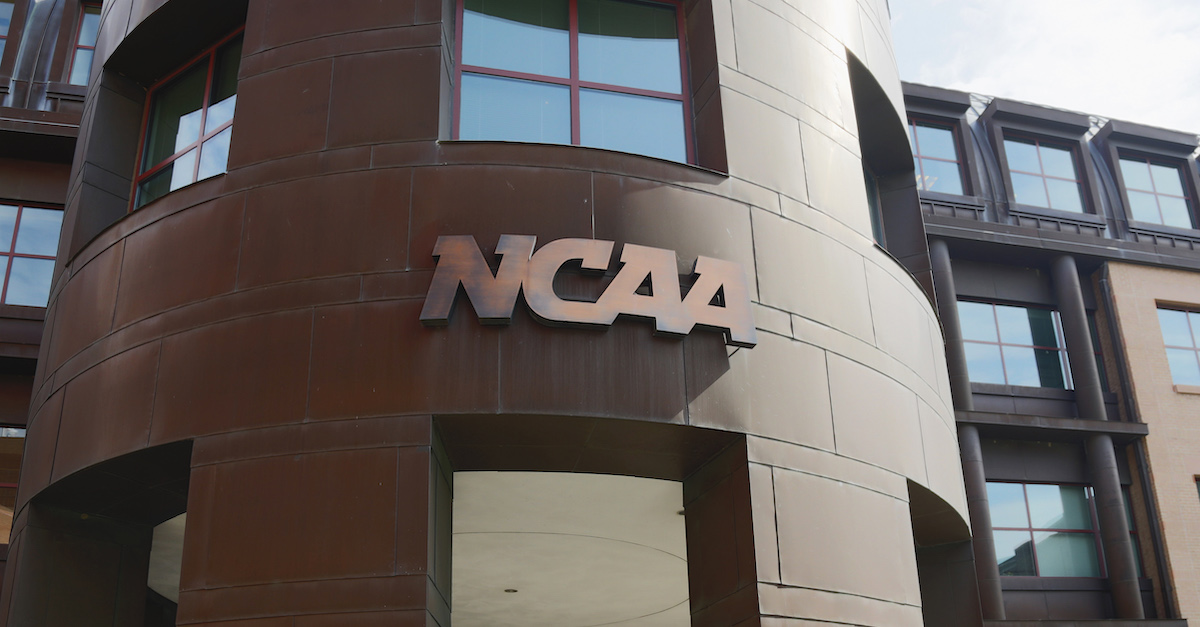
The National Collegiate Athletic Association (NCAA) is threatening to pack up their balls and go … somewhere that’s not California.
America’s largest publicly-subsidized and privately-profitable regulator of athletics in higher education is giving the Golden State an ultimatum: scrap your law empowering college athletes or we’ll kick your entire state out of the NCAA. California legislators recently approved the “Fair Pay to Play Act” which gives college athletes authority over–and the ability to make money off of–their own names, licensing and image (NLI).
On Monday, the bill was unanimously approved by the California State Assembly and the California State Senate is likely to approve the bill with a lopsided majority in favor. Then it’s off to Governor Gavin Newsom (D), who is widely expected to sign the act into law. It would not take effect, however, until January 1, 2023–so almost no one in college right now would be able to profit off their NLI rights under the bill.
The NCAA has opposed the measure at every turn and, on Wednesday, the extremely profitable non-profit’s entire governing board issued an open letter to Newsom demanding the San Francisco Democrat shelve the law or risk the loss of all NCAA programs in the sunny, left coast state.
The letter started off with a paean to unity and mutual respect in sports.
“The 1,100 schools that make up the NCAA have always, in everything we do, supported a level playing field for all student-athletes,” it said. “This core belief extends to each member college and university in every state across the nation.”
But quickly off came the gloves:
California Senate Bill 206 would upend that balance. If the bill becomes law and California’s 58 NCAA schools are compelled to allow an unrestricted name, image and likeness scheme, it would erase the critical distinction between college and professional athletics and, because it gives those schools an unfair recruiting advantage, would result in them eventually being unable to compete in NCAA competitions. These outcomes are untenable and would negatively impact more than 24,000 California student-athletes across three divisions.
The doom and gloom didn’t stop there.
As the letter continued, the NCAA, in supporting its opposition to paying athletes, said it was concerned about “fairness.”
“Right now, nearly half a million student-athletes in all 50 states compete under the same rules,” the letter continues, “This bill would remove that essential element of fairness and equal treatment that forms the bedrock of college sports.”
The NCAA letter also claimed that the NLI rights bill is “unconstitutional,” but didn’t explain this categorization.
According to Sports Illustrated legal expert Michael McCann, this argument might be based on a novel reading of the U.S. Constitution’s controversial Commerce Clause–which grants Congress the sole power to regulate interstate commerce.
Because NCAA games are broadcast–and played–in all 50 states, McCann explained, the organization could feasibly assert a claim that California’s legislature is attempting to regulate interstate commerce. It’s not clear if this argument would hold water.
In any event, the NCAA is currently contractually bound with several commercial partners well beyond the date the “Fair Pay to Play Act” is currently scheduled to take effect. So, in a sense, the NCAA may be attempting to run out the clock on the movement to pay college athletes for their labor.
[image via Joe Robbins/Getty Images]
Have a tip we should know? [email protected]